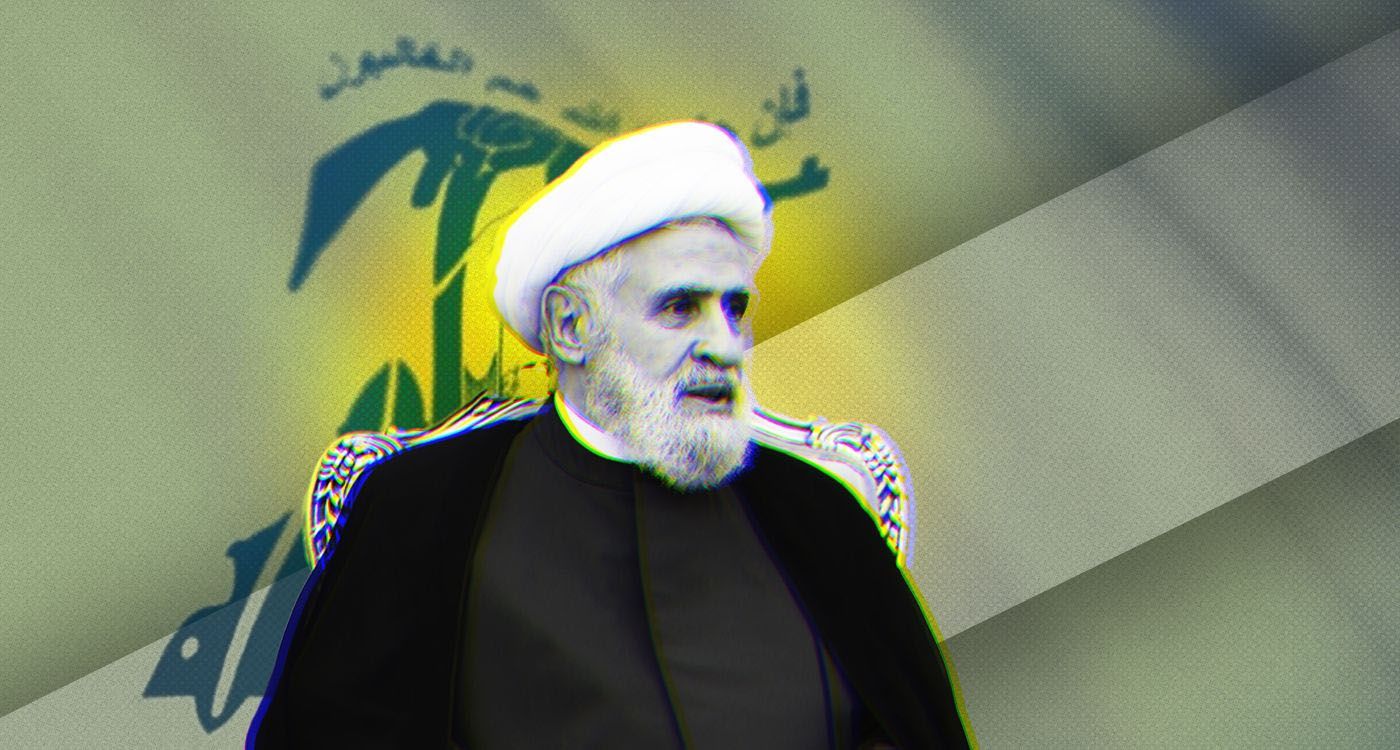- Home
- Highlights
- The Stages of Naim Qassem’s Grief

©This is Beirut
A clear separation is emerging between Naim Qassem and Hezbollah, or even between various factions within the party and its wider base of supporters, following the absence of a central figure like Hassan Nasrallah, which has undermined decision-making and centralized authority.
Historically, Qassem played a secondary role within Hezbollah, primarily serving as a messenger when Nasrallah preferred not to intervene directly in key decisions or public statements.
But the assassination of Nasrallah, along with Hashem Safieddine, the frontrunner to succeed him, placed Qassem in an unenviable position: that of the “Designated Survivor.” This term, borrowed from the US government, refers to one person kept away from major gatherings in order to assume leadership if the entire top tier is eliminated. Typically, this person is low in the hierarchy because senior figures are expected to attend key gatherings.
Naim Qassem now finds himself in a deeply uncomfortable position, in what can be described as a state of profound psychological mourning, as defined by Swiss-American psychiatrist Elisabeth Kübler-Ross in her five-stage model of grief.
Hezbollah and Qassem are not immune to human responses to loss. The state of mourning since the recent war in Lebanon, from Pager’s attacks to the present, has persisted, albeit in various forms and with innovative methods — many involving motorcycle rallies.
The first stage of grief is denial. This was evident in the rallies of Hezbollah supporters who initially refused to believe Nasrallah had been assassinated, continuing to await him, as if he would one day reappear, and holding on to the belief that they had not lost the war and were still on course to liberate Jerusalem.
The government’s decision last week to monopolize all weapons under state control shattered this denial and moved Hezbollah’s supporters into the second stage: anger. This anger now manifests in motorcycle rallies and sharply escalatory rhetoric: threats, insults, and vulgarities aimed at the president, the prime minister, and any minister supporting the decision.
Naim Qassem’s most recent remarks only reinforce this analysis. His words reflect a leadership and a popular base steeped in fury, framing martyrdom as the only path as if to say: “I’d rather fall in battle than surrender my cause.”
Victimhood is likely next, coinciding with parliamentary elections. Hezbollah will present itself as wronged and abandoned, lamenting that reality on the ground does not match its aspirations, and claiming it has been left to face unending crises. This narrative will serve as the backbone of an electoral campaign built atop the rubble of the last war.
Depression will surface as Lebanon negotiates a truce—or even peace—with Israel. This outcome has become inevitable, even if Hezbollah tries to reject it or repackage it with phrases like “commitment to the ceasefire.”
The fifth and final stage will be acceptance. This will come only when Hezbollah, and the Shia community that supports it, acknowledges that the state’s train has already departed, and that it must board it at any cost, recognizing that the government alone can protect its community and its people.
Read more



Comments